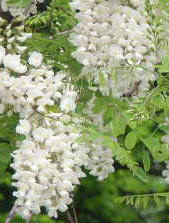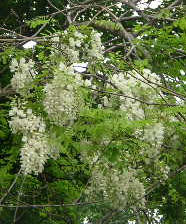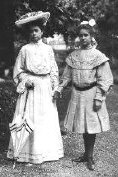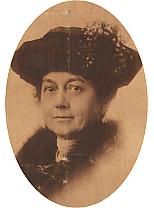The Land of the Little Colonel, like “all Gaul,” is divided into three parts.
One lies in the State of Kentucky, one in the Country of Imagination, and
one in the dear demesne of Memory.
— Annie Fellows Johnston, Land of the Little Colonel, 1929
 Annie Fellows Johnston, a celebrated author of children’s and juvenile fiction from the 1890’s until her death in 1931, is best known for her “Little Colonel” series, a semi biographical opus of 13 novels dealing with the aristocracy of old Kentucky, particularly the story of a young girl, who came to be known as “The Little Colonel.” Her works sold millions of copies, and were translated into over 40 languages, including Japanese.
Annie Fellows Johnston, a celebrated author of children’s and juvenile fiction from the 1890’s until her death in 1931, is best known for her “Little Colonel” series, a semi biographical opus of 13 novels dealing with the aristocracy of old Kentucky, particularly the story of a young girl, who came to be known as “The Little Colonel.” Her works sold millions of copies, and were translated into over 40 languages, including Japanese.
Annie first met “The Little Colonel” in the early 1890s, a five year old child whose bully mannerisms seemed to echo the military traits of her grandfather, a former confederate colonel. This inspired a Annie to write the now classic tale first published in 1895. Its popularity was such that soon another story followed, then another and another. Johnston planned to complete the series several times, once after The Little Colonel’s House Party, again after The Little Colonel’s Knight Comes Riding. Always, public demand compelled Johnston to continue. The last work of the series, The Little Colonel Stories, Part 2, was published only a few months before her passing and over 35 years after the original Little Colonel story. The fame of The Little Colonel peaked in 1935 with the film of the same name starring Shirley Temple & Lionel Barrymore.
In the latter half of the 20th Century, Annie Fellows Johnston began to pass into relative obscurity. There has been little demand in the last few years for the romantic and sentimental wholesomeness portrayed in her works. Modern critics often dismissed her as unimportant and too moralizing, not stopping to consider the tremendous impact she had on the shaping of young minds, and therefore the national mores of a century ago. Furthermore, the the auto- and biographical nature of her works gives tremendous insight into the lifestyle and thought of the Victorian and post-Victorian era among the gentry of the American heartland. There can be no doubt that Johnston’s strong belief in education relayed in her novels, especially for women and girls, had a lasting and important influence for generations of young Americans.
May! The Locusts abloom in Lloydsboro Valley
The fragrant black locust, or robinia pseudoacacia
has a normal bloom time early to mid May in Kentucky
Annie Fellows Johnston with Hattie Cochran, “The Little Colonel”
(Click image for enlargement)
Mrs. Annie Fellows Johnston
The Author



